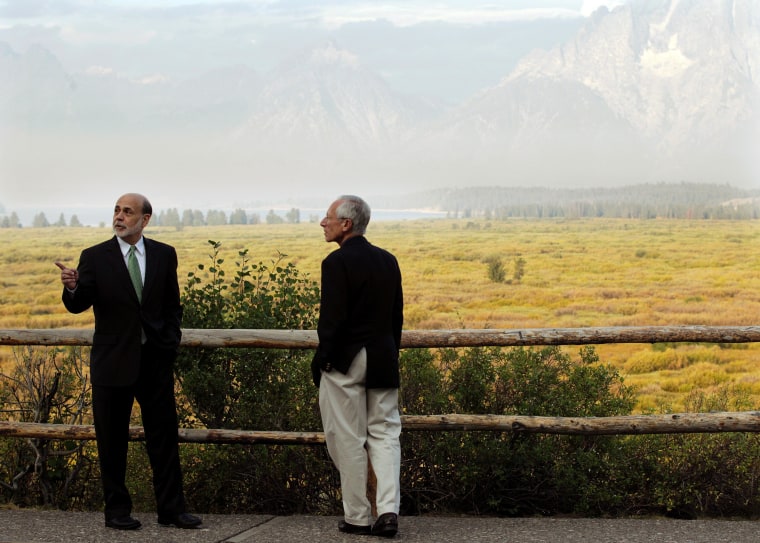When Chairman of the Federal Reserve Ben Bernanke spoke on Friday in Jackson Hole, Wyoming, it seemed he had given up all hope of Congress listening to the warning he made in July.
At that time, Bernanke said U.S. economic policies were on an unsustainable path and the "recovery could be endangered by the confluence of tax increases and spending reductions that will take effect early next year if no legislative action is taken."
Since Congress has yet to pass a budget and prevent compulsory cuts from going into effect at the beginning of 2013, which Bernanke warned could lead to 1.25 million fewer jobs being created that year, the Chairman sighed, made no mention of Congress, and acknowledged the Fed can do more. But what exactly, he left to be desired.
In his defense of unconventional monetary policies, Bernanke hinted that the Fed may employ a third round of quantitative easing (QE). That would mean a third round of bond purchases intended to fight unemployment by encouraging more borrowing and spending as well as even lower long-term interest rates.
Caroline Baum of Bloomberg View has a prediction:
That means another kick in the pants is likely. While Bernanke said the "hurdle" for non-traditional policies may be high, the bar for additional action seems to be set quite low. The minutes from the Fed's July 31-Aug. 1 meeting state that additional steps "would likely be warranted pretty soon" absent a "substantial and sustainable" improvement in the economy.
What might that mean for the election?
There are only two more meetings before the November election: Sept. 12-13 and Oct. 23-24. The Fed would probably prefer to stay out of the headlines in late October, which means September would be the most logical time to announce something beyond the existing maturity-extension program.
The big question is, if (or when) the historically unpopular Congress again fails to pass a budget, how much more can Bernanke and the Fed do? How much will they do?
